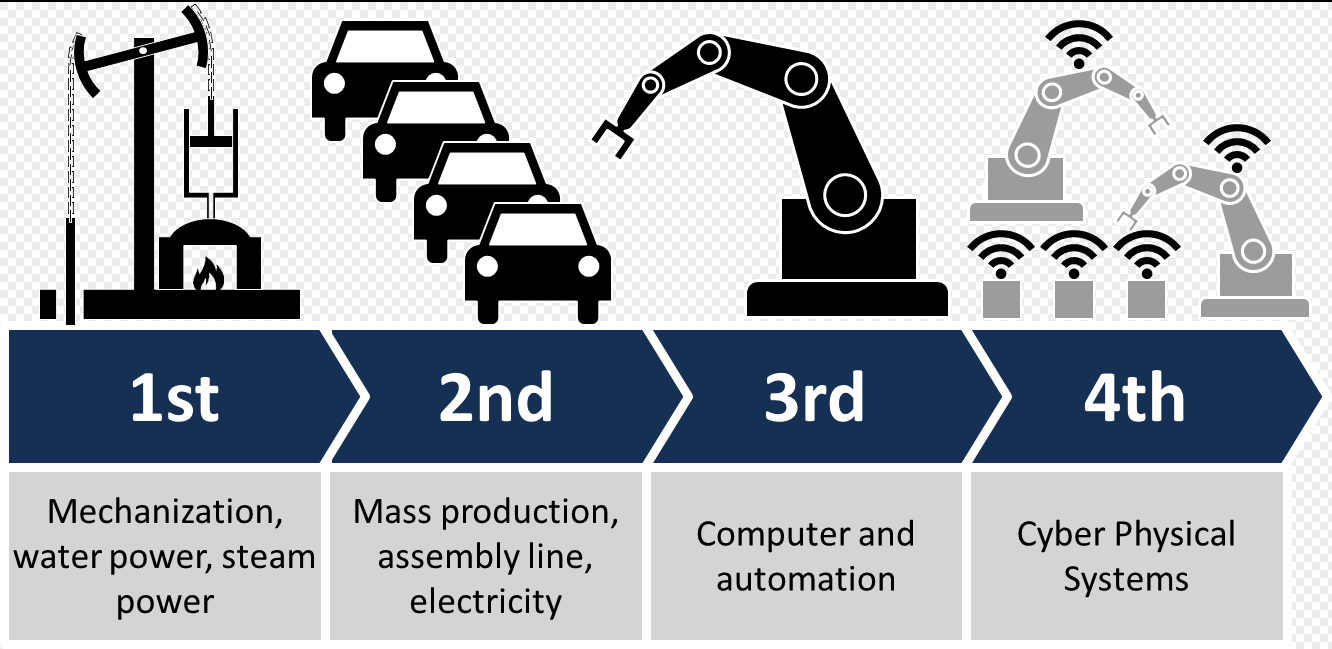Business 5.0: Gateway to autonomous business processes
May 08, 2019 by Stefan Groschupf

Inefficiency is a plague on growing businesses and their employees. In a study on data management, a whopping 44% of employee time was wasted on a weekly basis as a result of unsuccessful hours spent in data research or preparation — in other words, rote administrative tasks. The bottom line: Inefficiency wastes valuable company resources.
Now imagine taking these repetitive tasks away. How much more productive could employees be? Would their work be higher quality? How would this affect the operational costs of your company?
A future without all this waste is just around the corner. Fully autonomous business processes are near and the groundwork is being laid as we speak.
Potential of business process automation
A typical rule-based process (like data entry or sorting files) can be about 70% to 80% automated, yet these tasks take human workers several hours of manual work daily. It’s estimated that 50% of automation opportunities are overlooked.
Business process automation is not new. This tech has already been in use for a few years, with machines, software, tools or systems handling certain steps in a process or an entire task with little-to-no human influence.
Until now, business process automation tools were limited in the tasks they could perform or understand. But with the latest innovation and democratization of artificial intelligence, business process automation has expanded beyond rule-based systems.
We can use customer service email addresses as an example. Email inboxes like these previously had to be sorted manually. Now with AI-powered email servers boosted by natural language processors, the intent of the email can be understood and passed to the correct department or representative, drastically shortening customer response time.
But what other opportunities are there for autonomous business processes? Things like CRM data entry, various human resources processes, documents and record management, claims, booking and invoice management and many IT processes all have automation potential.
These solutions have a real-world impact across industries that pour too much time into administrative work. A Zapier report shows 76% of office workers spend up to three hours a day on data entry alone. For fast-paced, buyer-facing roles like sales, these kinds of time-eaters are a huge problem for growth.
When reps automate their repetitive processes with sales AI tools, they save time and the company money. Reducing waste is where the real value lies in implementing autonomous business processes.
By applying business process automation, companies can reduce labor-intensive, repetitive tasks by 80%. Almost all (98%) of IT leaders agree that automating business processes is essential in order to drive positive company benefits.
Introducing ‘Business 5.0’
AI-powered business process automation opportunities are no longer reserved for niche industries, departments or processes. A wave of innovation is now significantly reducing all the wasted time employees spend on repetitive tasks.
To properly explain this next evolutionary industry shift, Automation Hero coined the term “Business 5.0.” It’s the idea that automation powered by AI will drastically change company structure, business processes and employee workflow as we know it during the coming years. To fully understand what “Business 5.0” means, you must understand what came before it.
Throughout history, there have been several industrial revolutions, the first of which ended in the early 1800s and sparked massive transformations around manufacturing technology.

There were major advancements in mechanical, water and steam-powered systems. In 1870, the second industrial revolution ushered in the age of mass production with the assembly line. This is also when electricity became widespread.
The third, known as the “Digital Revolution,” has been considered to kick off in the mid-20th century when manufacturing went digital with computers, the internet, mobile phones, and automated systems converging.
Currently, we’re at the peak of “Industry 4.0” — the advent of connected devices. Based on the innovations derived from Industry 4.0, we predict “Business 5.0” will lead companies down a groundbreaking path.
During this next wave of progress, information workers will begin processing alongside artificial intelligence in order to produce more, waste less and do it all in a shorter amount of time. AI tools will reduce the manual workload for human employees and give them time to focus on the valuable, humanistic aspects of their work.
To go a step further, we predict in less than 10 years every information worker will be using some sort of AI assistant in their job. There have already been mass adoption rates for personal AI assistants. Estimates show 128 million people use voice assistants monthly in the U.S. alone, through smart phones and speakers that make our day-to-day activities easier and more enjoyable. This same obsession with our AI devices will carry over into our jobs.
Place for people
Thinking of a future like this, while there are substantial benefits, is scary for some people because of the looming job loss that comes with an autonomous business. Let’s won’t sugar coat it; a future with fully autonomous business processes will come with massive shifts in the job market. McKinsey predicts that by 2030 45 million American jobs will be replaced with automation.
However, don’t let that stop you from embracing autonomous business processes. Business 5.0 is not about replacing humans, but rather getting rid of outdated processes and tasks. Humans have much more valuable work to focus on. It is estimated that 85 percent of jobs that will be in demand in 2030 have not been created yet.
Regarding the cycle of job loss and creation, esteemed futurist Ray Kurzweil said in an interview with Fortune:
We have already eliminated all jobs several times in human history. How many jobs circa 1900 exist today? … Well, don’t worry, for every job we eliminate, we’re going to create more jobs at the top of the skill ladder. And people would say, ‘What new jobs?’ And I’d say, ‘Well, I don’t know. We haven’t invented them yet.’
Business process automation will shift the job market and the tasks required of business employees will change. Businesses will put a higher value on employees with critical skills that machines can’t replace, like creativity, critical thinking, innovation, and empathy.
Imagine the possibilities for human work after excess processes are stripped away. After each revolution, human capabilities and skills surged forward and reached a potential that was never imagined during the era that preceded it. AI will redefine the way we work, but it will also pave the way for something new.
Automation will bring tremendous benefits to businesses by making them more efficient than ever before while also reducing operational costs.
Close Window
Automation Hero will track how you use the emails (e.g., at what time you open which part of the emails) sent by Automation Hero. If you have provided a separate declaration of consent that cookies for tracking your usage of the website and/or apps may be placed on your device, Automation Hero will also connect the information about your use of Automation Hero’s websites and apps (e.g., which information you open) collected by the tracking cookie to such information in so far as possible. Automation Hero will analyze such information, to identify your interests and preferences and to communicate with you in a more personalized and effective way, e.g. by providing information that you are likely interested in, like information on new technologies or products of the Automation Hero group that are likely relevant to you.
